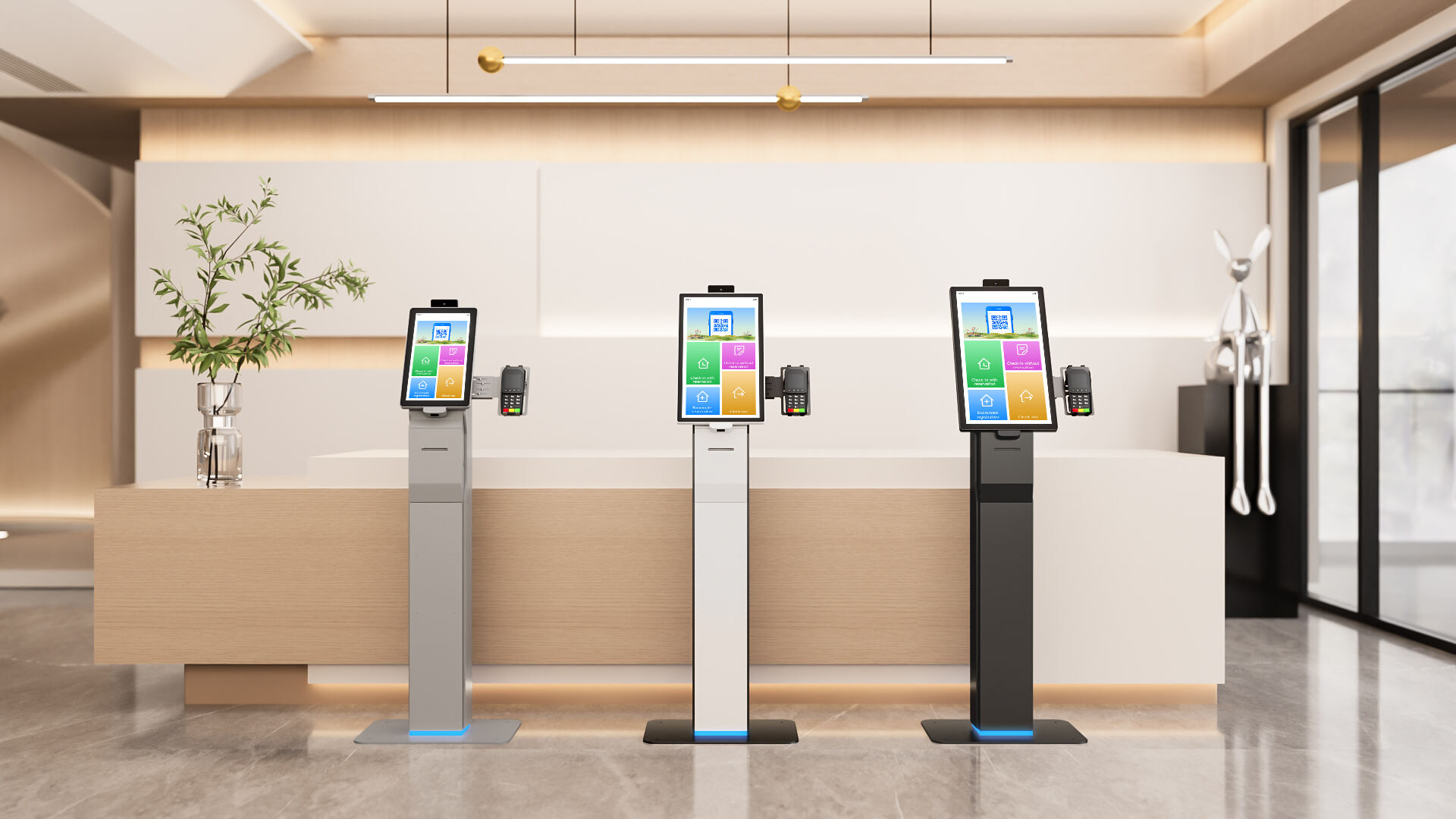
The retail landscape is undergoing a dramatic transformation, with self kiosks emerging as a cornerstone of modern shopping experiences. These intelligent machines are revolutionizing how businesses interact with customers, streamline operations, and maximize efficiency. As consumer preferences evolve and technology advances, retailers are discovering that investing in self kiosks isn't just an option – it's becoming essential for staying competitive in today's fast-paced market.
From quick-service restaurants to fashion boutiques, self kiosks are proving their worth by reducing wait times, increasing order accuracy, and providing consistent service quality. The technology has matured significantly, offering sophisticated features that enhance both customer experience and operational efficiency. Let's explore why these automated solutions are becoming indispensable in modern retail environments.
Implementing self kiosks presents substantial opportunities for cost savings across various operational aspects. These automated systems can significantly reduce labor costs by handling routine transactions, allowing businesses to optimize their workforce allocation. While the initial investment in self kiosks may seem considerable, the long-term savings in staffing, training, and operational expenses often result in a positive return on investment within the first year of deployment.
Additionally, self kiosks operate with consistent efficiency around the clock, requiring minimal downtime for maintenance. This reliability translates to reduced operational overhead and improved resource utilization, enabling businesses to allocate their budget more strategically.
Self kiosks have demonstrated remarkable capability in driving revenue growth through various mechanisms. These systems excel at upselling and cross-selling, presenting customized recommendations based on customer selections and historical data. Research shows that customers tend to place larger orders when using self kiosks, partly due to the reduced social pressure and increased time to browse options thoroughly.
Moreover, these automated solutions can process transactions more quickly than traditional checkout methods, leading to higher customer throughput during peak hours. The ability to serve more customers efficiently directly contributes to increased daily revenue potential.

Modern self kiosks leverage advanced technology to deliver highly personalized shopping experiences. These systems can remember customer preferences, suggest relevant products, and provide tailored recommendations based on previous purchases. The convenience of self-service options appeals to customers who prefer minimal interaction or quick transactions, particularly in today's fast-paced retail environment.
The intuitive interfaces of self kiosks make them accessible to users of all ages and technical abilities. Clear visuals, multiple language options, and step-by-step guidance ensure a smooth customer journey from browsing to checkout.
One of the most significant advantages of self kiosks is their ability to minimize queue times and enhance service efficiency. By deploying multiple self-service stations, retailers can serve several customers simultaneously, effectively reducing wait times during peak hours. This improved service speed not only increases customer satisfaction but also helps maintain steady foot traffic flow throughout the establishment.
The consistency and reliability of self kiosks ensure that service quality remains high even during the busiest periods. Customers appreciate the predictable nature of these interactions and the ability to complete transactions at their own pace.
Self kiosks serve as valuable data collection points, gathering detailed information about customer preferences, purchasing patterns, and peak usage times. This wealth of data enables retailers to make informed decisions about inventory management, staffing levels, and marketing strategies. The ability to track and analyze customer behavior in real-time provides crucial insights for optimizing operations and improving service delivery.
Advanced analytics capabilities built into modern self kiosks help businesses identify trends, predict demand, and personalize offerings more effectively. This data-driven approach to retail management can lead to significant improvements in operational efficiency and customer satisfaction.
The integration of self kiosks with inventory management systems provides real-time updates on product availability and automatically adjusts displays to reflect current stock levels. This seamless synchronization helps prevent customer disappointment due to out-of-stock items and enables more efficient inventory control.
For businesses with frequently changing offerings, such as restaurants or seasonal retailers, self kiosks allow for quick and easy menu or product catalog updates across all locations simultaneously. This centralized control ensures consistency and reduces the time and resources required for updates.
Investing in self kiosks positions businesses for future growth and adaptation to changing market conditions. These systems can be easily scaled up or down based on demand, and software updates can be deployed remotely to add new features or improve functionality. The modular nature of modern self kiosks allows for easy integration with emerging technologies and payment methods as they become available.
As consumer expectations continue to evolve, self kiosks provide the flexibility needed to adapt to new service models and customer preferences. Their adaptability makes them a sound investment for businesses looking to stay ahead of industry trends.
Self kiosks contribute to environmental sustainability by reducing paper waste through digital receipts and minimizing the need for printed materials. The energy-efficient design of modern kiosks helps decrease power consumption compared to traditional point-of-sale systems. These environmental benefits align with growing consumer preference for eco-friendly business practices.
Additionally, the reduced need for physical space and resources makes self kiosks an environmentally conscious choice for businesses looking to minimize their carbon footprint while maximizing operational efficiency.
Most businesses typically see a return on investment within 12-18 months of implementing self kiosks, depending on factors such as transaction volume, labor costs, and operational efficiency improvements. Some high-traffic locations may achieve ROI even sooner, particularly when considering reduced labor costs and increased sales through upselling features.
While self kiosks are valuable across many sectors, they are particularly beneficial for quick-service restaurants, retail stores, hotels, healthcare facilities, and entertainment venues. Any business with high transaction volumes, repeat customers, or the need for consistent service delivery can significantly benefit from implementing self-service technology.
Rather than replacing staff, self kiosks typically allow businesses to redeploy employees to more value-added activities such as customer service, product assistance, and complex problem-solving. This redistribution of labor often leads to improved customer satisfaction and more efficient operations overall.

Copyright © 2025 Shenzhen YJCen Technology CO.,Ltd. All rights reserved. - Privacy policy